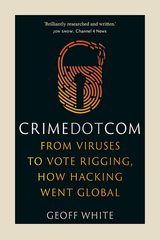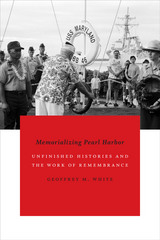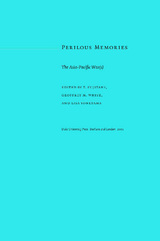3 books by White, Geoff

Crime Dot Com
From Viruses to Vote Rigging, How Hacking Went Global
Geoff White
Reaktion Books, 2021
From Anonymous to the Dark Web, a dizzying account of hacking—past, present, and future.
“Brilliantly researched and written.”—Jon Snow, Channel 4 News
“A comprehensive and intelligible account of the elusive world of hacking and cybercrime over the last two decades. . . . Lively, insightful, and, often, alarming.”—Ewen MacAskill, Guardian
On May 4, 2000, an email that read “kindly check the attached LOVELETTER” was sent from a computer in the Philippines. Attached was a virus, the Love Bug, and within days it had been circulated across the globe, paralyzing banks, broadcasters, and businesses in its wake, and extending as far as the UK Parliament and, reportedly, the Pentagon. The outbreak presaged a new era of online mayhem: the age of Crime Dot Com. In this book, investigative journalist Geoff White charts the astonishing development of hacking, from its conception in the United States’ hippy tech community in the 1970s, through its childhood among the ruins of the Eastern Bloc, to its coming of age as one of the most dangerous and pervasive threats to our connected world. He takes us inside the workings of real-life cybercrimes, drawing on interviews with those behind the most devastating hacks and revealing how the tactics employed by high-tech crooks to make millions are being harnessed by nation states to target voters, cripple power networks, and even prepare for cyber-war. From Anonymous to the Dark Web, Ashley Madison to election rigging, Crime Dot Com is a thrilling, dizzying, and terrifying account of hacking, past and present, what the future has in store, and how we might protect ourselves from it.
“Brilliantly researched and written.”—Jon Snow, Channel 4 News
“A comprehensive and intelligible account of the elusive world of hacking and cybercrime over the last two decades. . . . Lively, insightful, and, often, alarming.”—Ewen MacAskill, Guardian
On May 4, 2000, an email that read “kindly check the attached LOVELETTER” was sent from a computer in the Philippines. Attached was a virus, the Love Bug, and within days it had been circulated across the globe, paralyzing banks, broadcasters, and businesses in its wake, and extending as far as the UK Parliament and, reportedly, the Pentagon. The outbreak presaged a new era of online mayhem: the age of Crime Dot Com. In this book, investigative journalist Geoff White charts the astonishing development of hacking, from its conception in the United States’ hippy tech community in the 1970s, through its childhood among the ruins of the Eastern Bloc, to its coming of age as one of the most dangerous and pervasive threats to our connected world. He takes us inside the workings of real-life cybercrimes, drawing on interviews with those behind the most devastating hacks and revealing how the tactics employed by high-tech crooks to make millions are being harnessed by nation states to target voters, cripple power networks, and even prepare for cyber-war. From Anonymous to the Dark Web, Ashley Madison to election rigging, Crime Dot Com is a thrilling, dizzying, and terrifying account of hacking, past and present, what the future has in store, and how we might protect ourselves from it.
[more]

Memorializing Pearl Harbor
Unfinished Histories and the Work of Remembrance
Geoffrey M. White
Duke University Press, 2016
Memorializing Pearl Harbor examines the challenge of representing history at the site of the attack that brought America into World War II. Analyzing moments in which history is re-presented—in commemorative events, documentary films, museum design, and educational programming—Geoffrey M. White shows that the memorial to the Pearl Harbor bombing is not a fixed or singular institution. Rather, it has become a site in which many histories are performed, validated, and challenged. In addition to valorizing military service and sacrifice, the memorial has become a place where Japanese veterans have come to seek recognition and reconciliation, where Japanese Americans have sought to correct narratives of racial mistrust, and where Native Hawaiians have challenged their ongoing erasure from their own land. Drawing on extended ethnographic fieldwork, White maps these struggles onto larger controversies about public history, museum practices, and national memory.
[more]

Perilous Memories
The Asia-Pacific War(s)
T. Fujitani, Geoffrey M. White, Lisa Yoneyama, eds.
Duke University Press, 2001
Perilous Memories makes a groundbreaking and critical intervention into debates about war memory in the Asia-Pacific region. Arguing that much is lost or erased when the Asia-Pacific War(s) are reduced to the 1941–1945 war between Japan and the United States, this collection challenges mainstream memories of the Second World War in favor of what were actually multiple, widespread conflicts. The contributors recuperate marginalized or silenced memories of wars throughout the region—not only in Japan and the United States but also in China, Southeast Asia, the Pacific Islands, Okinawa, Taiwan, and Korea.
Firmly based on the insight that memory is always mediated and that the past is not a stable object, the volume demonstrates that we can intervene positively yet critically in the recovery and reinterpretation of events and experiences that have been pushed to the peripheries of the past. The contributors—an international list of anthropologists, cultural critics, historians, literary scholars, and activists—show how both dominant and subjugated memories have emerged out of entanglements with such forces as nationalism, imperialism, colonialism, racism, and sexism. They consider both how the past is remembered and also what the consequences may be of privileging one set of memories over others. Specific objects of study range from photographs, animation, songs, and films to military occupations and attacks, minorities in wartime, “comfort women,” commemorative events, and postwar activism in pursuing redress and reparations.
Perilous Memories is a model for war memory intervention and will be of interest to historians and other scholars and activists engaged with collective memory, colonial studies, U.S. and Asian history, and cultural studies.
Firmly based on the insight that memory is always mediated and that the past is not a stable object, the volume demonstrates that we can intervene positively yet critically in the recovery and reinterpretation of events and experiences that have been pushed to the peripheries of the past. The contributors—an international list of anthropologists, cultural critics, historians, literary scholars, and activists—show how both dominant and subjugated memories have emerged out of entanglements with such forces as nationalism, imperialism, colonialism, racism, and sexism. They consider both how the past is remembered and also what the consequences may be of privileging one set of memories over others. Specific objects of study range from photographs, animation, songs, and films to military occupations and attacks, minorities in wartime, “comfort women,” commemorative events, and postwar activism in pursuing redress and reparations.
Perilous Memories is a model for war memory intervention and will be of interest to historians and other scholars and activists engaged with collective memory, colonial studies, U.S. and Asian history, and cultural studies.
Contributors. Chen Yingzhen, Chungmoo Choi, Vicente M. Diaz, Arif Dirlik, T. Fujitani, Ishihara Masaie, Lamont Lindstrom, George Lipsitz, Marita Sturken, Toyonaga Keisaburo, Utsumi Aiko, Morio Watanabe, Geoffrey M. White, Diana Wong, Daqing Yang, Lisa Yoneyama
[more]
READERS
Browse our collection.
PUBLISHERS
See BiblioVault's publisher services.
STUDENT SERVICES
Files for college accessibility offices.
UChicago Accessibility Resources
home | accessibility | search | about | contact us
BiblioVault ® 2001 - 2024
The University of Chicago Press









